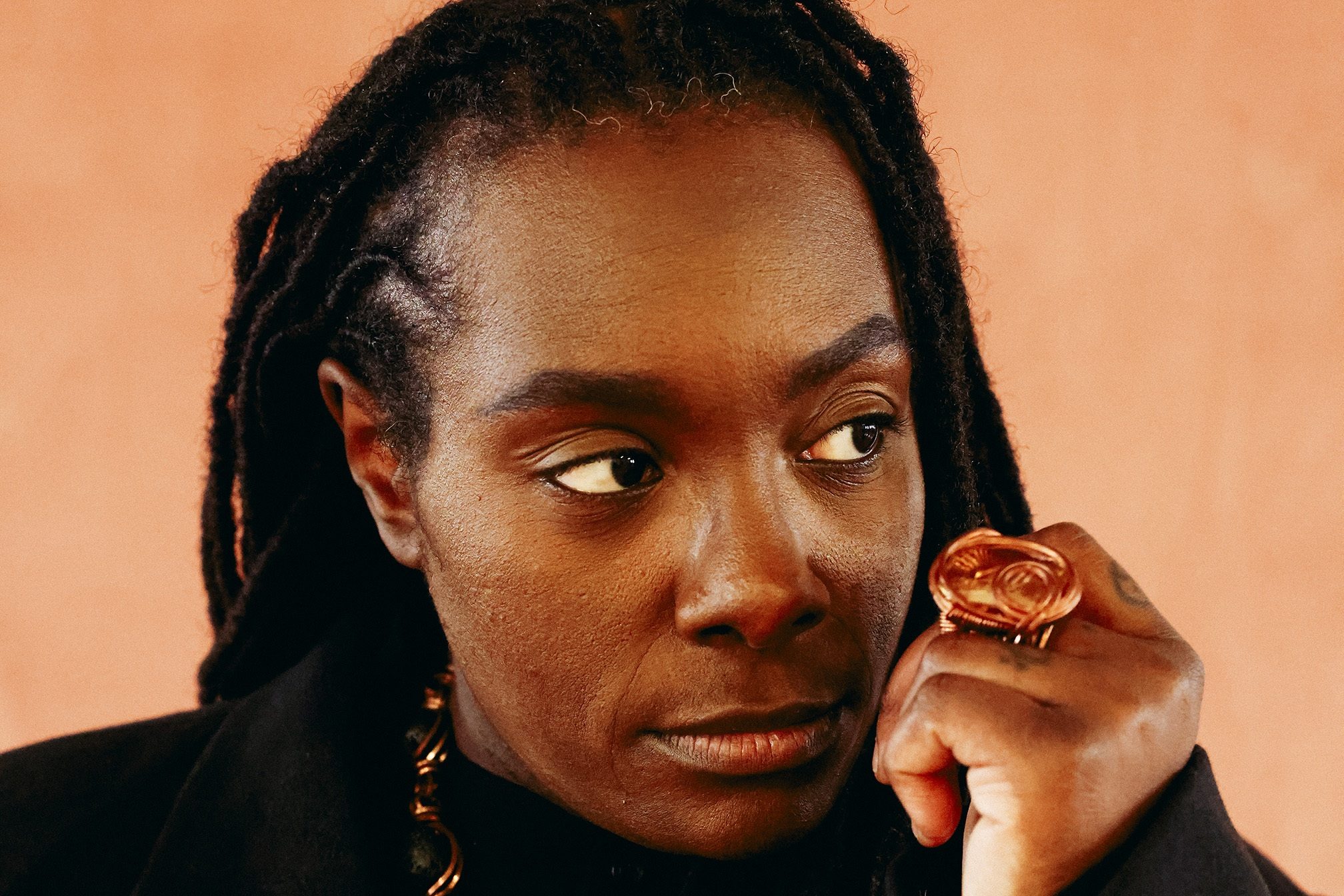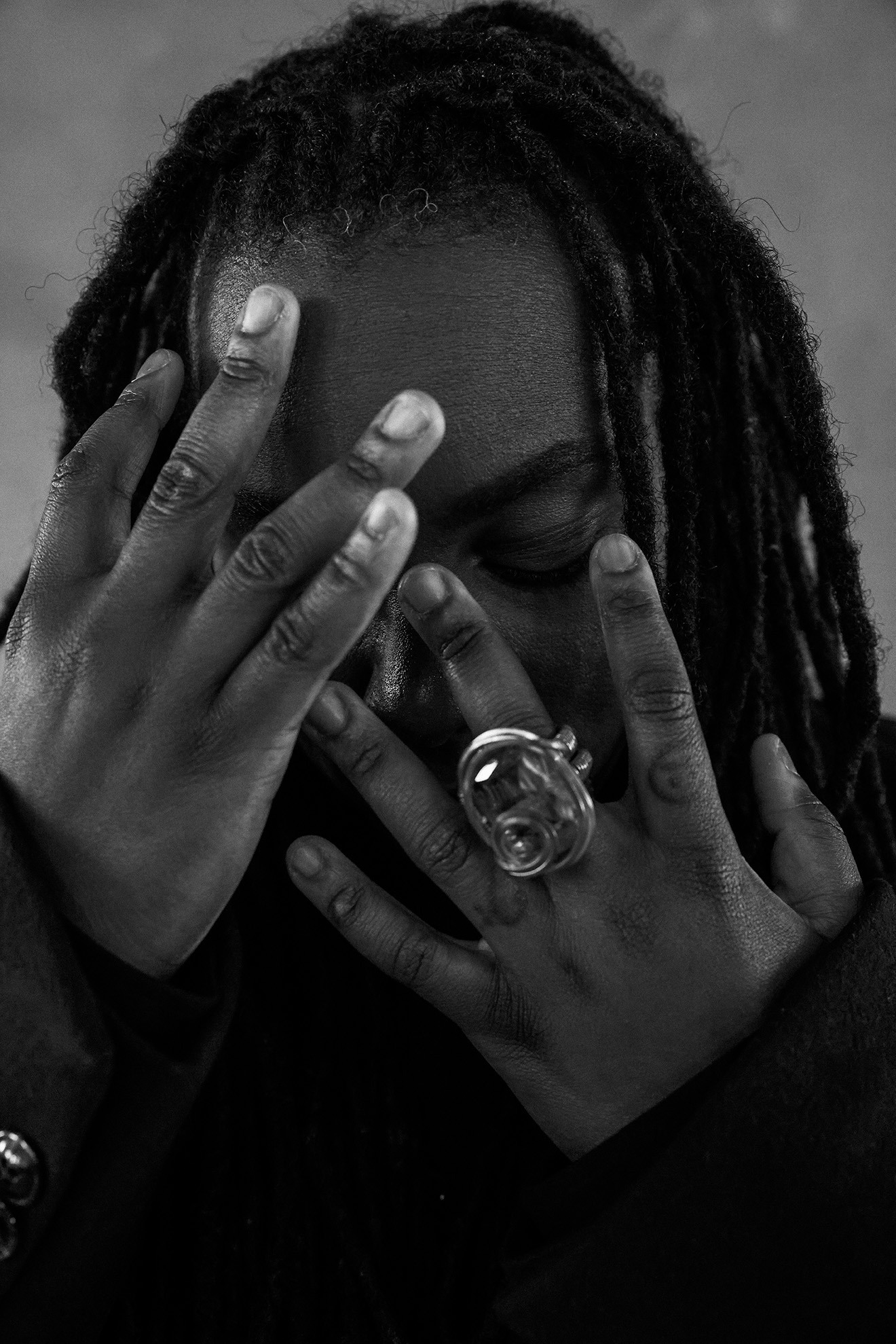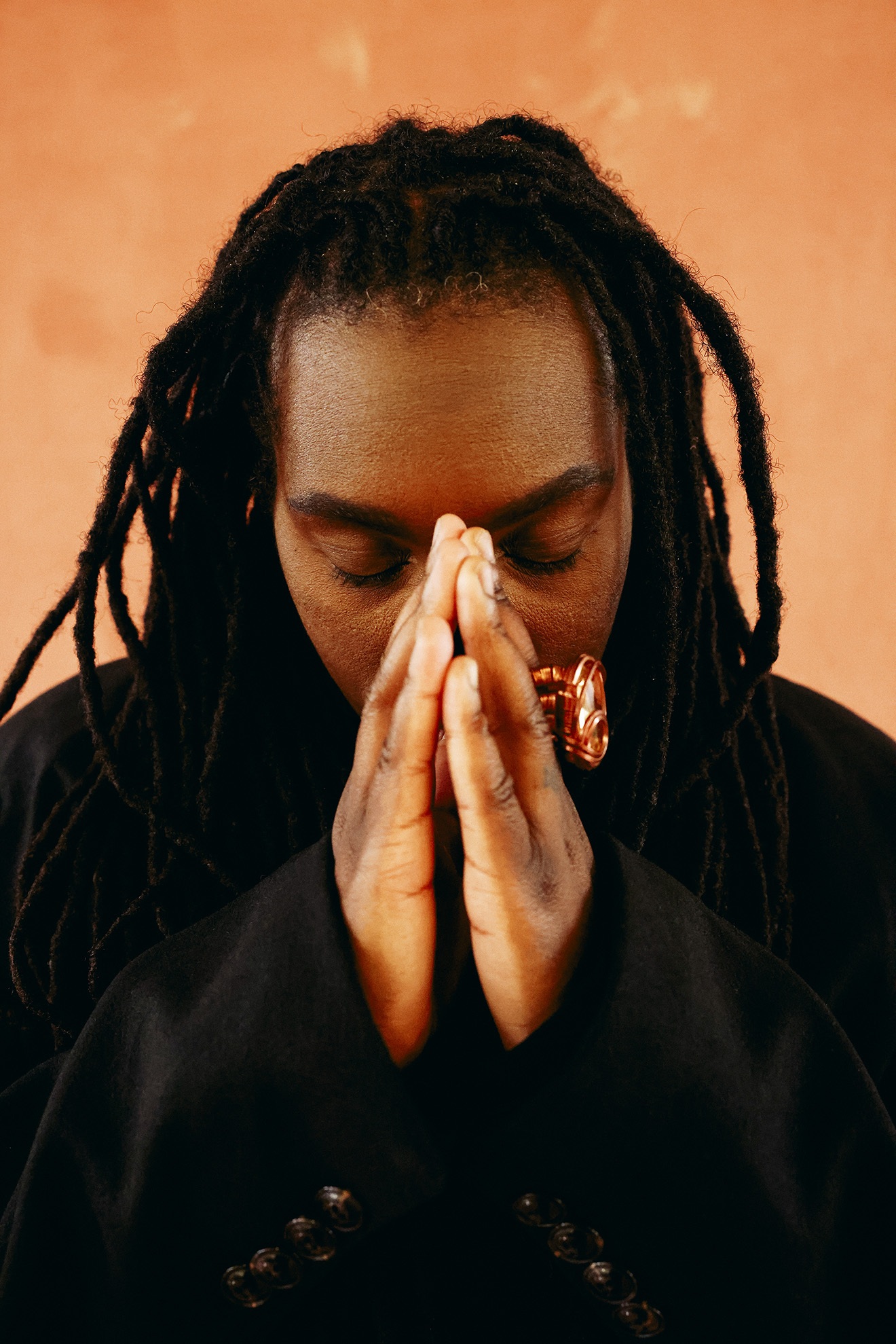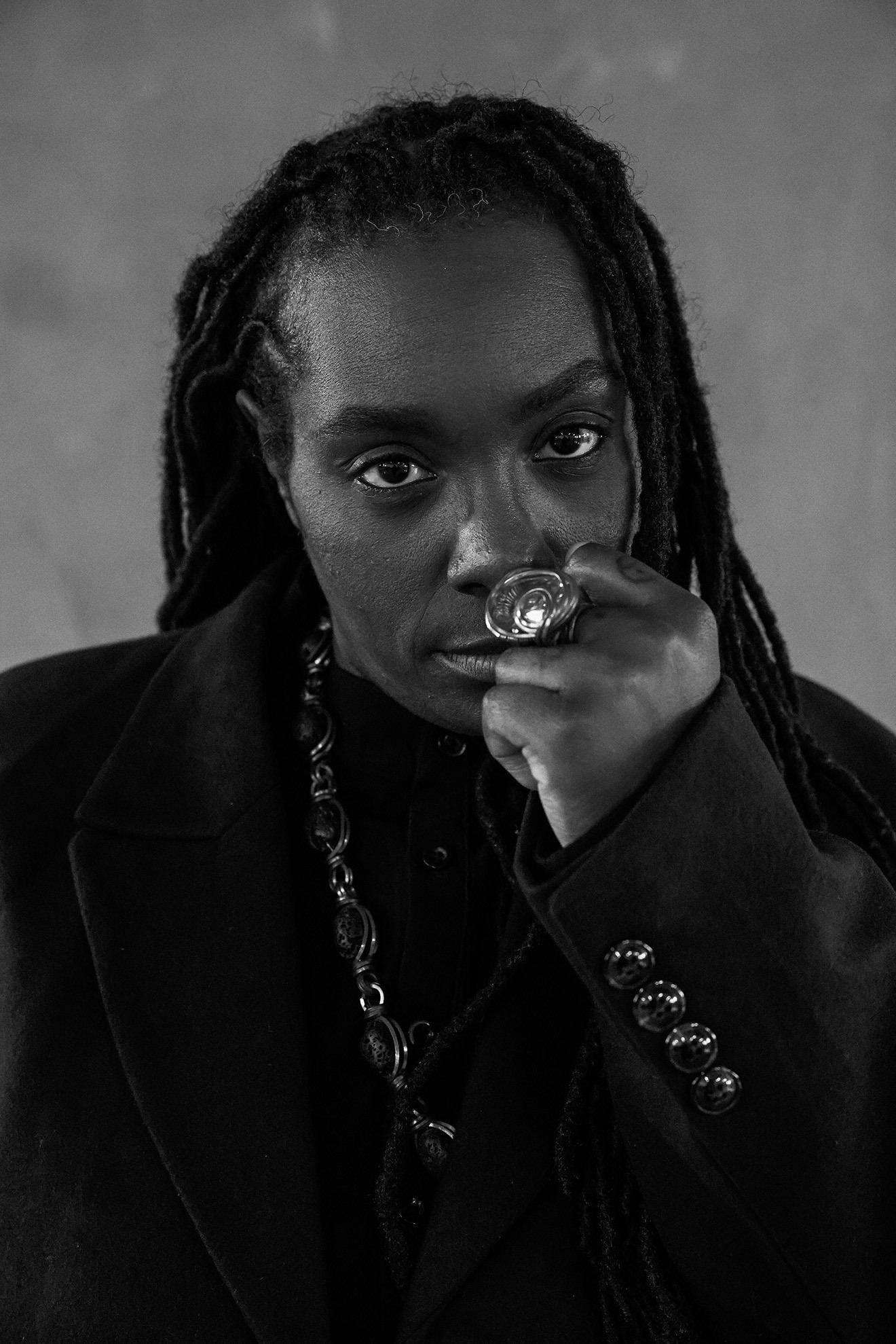 Features
Features
From footwork to infinity: Jlin is an era-defining artist
Since first emerging with some of the loudest, fastest, most powerful music on record, Jlin has ascended well beyond the realms of 160 BPM. Her new album ‘Akoma’, featuring Björk and Philip Glass, is the work of a one-off composer
In 2002 Nicole Kidman, Meryl Streep and Julianne Moore starred in an ambitious psychological drama called The Hours, based on a 1999 Michael Cunningham novel of the same name. It’s split into three parts, with each star playing a character from a different era, each of them touched in some way by the Virginia Woolf novel Mrs Dalloway. Kidman plays Woolf in 1923 Britain, complete with a prosthetic nose. She won an Oscar for it.
Bear with me. A year or two after it came out, a teenage girl in Gary, Indiana, sat down to watch The Hours with her mother. She was spellbound, by one thing in particular. “It’s the score,” she remembers. “I mean, it hits every scene. I’ve never seen a movie like that.”
Among the film’s eight other Oscar nominations was Philip Glass’s soundtrack for Best Original Score. It’s a series of utterly divine piano works, a relentless cascade of keys that intrude into every scene, becoming a character in its own right and offering up a performance even more memorable than that of nosy Nicole.
Jerrilynn Patton — the teenage girl who in 2004 was so transfixed by The Hours’ crystalline score — developed an obsession with Glass’s music. “That’s how I got introduced to Phillip’s work,” she says. “I started listening to his expression of the piano … I’ve always felt like he was never minimalist. He always maximised the hell out of those keys.”
Patton became a musician herself, going by Jlin, and 20 years later releases ‘The Precision Of Infinity (ft. Philip Glass)’ as the lead single to her third album proper. ‘Akoma’ arrives 12 years and change after Jlin began releasing some of the loudest, fastest, most powerful music ever committed to WAV, its two acclaimed predecessors now archived high in the best-of-decade lists of various music mags.
Read this next: Very spiritual moments: Jlin is pushing the limits of experimental dance music
Jlin has remained in the city of Gary for much of her life, working 96-hour weeks in a steel factory until she was well into her twenties — but when she broke through into online consciousness she was considered a new-wave member of the footwork scene in nearby Chicago. She says she first heard footwork when she was four (around 1991), a reminder of the sound’s longevity to anyone who thinks it began with Planet Mu’s first ‘Bangs & Works’ compilation in 2010. Jlin’s ridiculous breakout track ‘Erotic Heat’ was on ‘Bangs & Works Vol. 2’, and it caught the ear of everyone from Rick Owens to Björk (on whom more in a bit).
Jlin’s debut album ‘Dark Energy’ arrived a year after the death of footwork’s foremost progenitor DJ Rashad. Since then Jlin has continued her evolution into one of the world’s most singular producers, an artist no longer categorisable by her relation to a single sound, but rather a one-woman genre existing far out in space who knows nothing other than to keep pressing on into the darkness.
After collaborations with William Basinski, the late SOPHIE, Holly Herndon and various others that she may or may not admit to, Jlin bears as much resemblance to experimental classicists like Glass as she does to anyone in footwork, even if she’s only ever had two piano lessons.

Writing about the ‘The Hours OST’ in the liner notes to a 2022 reissue, the original book’s author wrote: “I love Glass’s music almost as much as I love Woolf’s Mrs. Dalloway. Glass, like Woolf, is more interested in that which continues than he is in that which begins, climaxes, and ends; he insists, as did Woolf, that beauty often resides more squarely in the present than it does in the present’s relationship to past or future.”
Your guess is as good as mine as to what he’s on about with that last bit. But could the same be said about Jlin?
“Um… yeah,” she says, on a Zoom call from Gary. “When I listen to Phillip, he’s so present in his work. In my work, I feel like I’m very present. I feel like you can feel my frustration, like, within a piece.”
She and Glass are now on first-name terms.
“The first time I met him, I cried,” she says. “He told me he was so proud of me. It was a very touching moment. I just said, ‘I have so many questions for you, sir.’ He said, ‘You’re doing great … be patient with yourself though, because I can hear you sometimes, you run out of patience with yourself … Be patient and embrace that frustration, because that is going to get you to where you want to be.’ And I have been trying ever since.”
Read this next: The 50 most influential dance music albums of all time
When Jlin dreamed up the idea that her idol should be on her album, she suggested he simply record himself practising piano at five in the morning as per his routine. “I said ‘I want him to wake up and just play anything. I don’t care what it is, whatever he wants to play. And just send me that, in the raw.’ And that’s what he did.”
She cast her digital spells on whatever Glass sent her and out came ‘The Precision of Infinity’, a waterfall of keys and beats that hits you like some geometric mind maze, an aural dimension warp à la that bit in Interstellar when McConaughey gets stuck in a bookcase. Jlin remembers playing Glass the finished track for the first time.
“He was sitting next to me and I remember a section where he grabbed my knee because he couldn’t believe what he was hearing. After I played it, he’s like, play it again.”
Glass is joined on ‘Akoma’ by the Kronos Quartet, another exemplar in Jlin’s bent for avant-garde classical. But that is just one formative discipline among the triangular surrogate parental unit that has guided her to this point. For Jlin’s musical DNA, like The Hours, is threefold.
Another such influence on her career is that of the singer. You might not guess it from listening to some of her more hellish onslaughts of noise, but Jlin often cites Sade, Nina Simone, Eartha Kitt and the Braxton sisters as formative powers.
“I listen to how they harmonise,” she says. “Sade was way ahead of her time, still is. Nina, same thing. Eartha, being a singer and a dancer, is really right up my alley because she has a rugged… jaggedness, but it’s so smooth, so spontaneous. I love when I can surprise myself in a song.”

Jlin sometimes talks about the first track she ever made, a flip of a Sade sample that has never been released. It’s rare that she’s ever actually worked with a singer. But she does so on the opening track of ‘Akoma’. Sort of. Listening to ‘Borealis (ft. Björk)’ for the first time, you’d be forgiven for assuming the Icelandic iconoclast’s contribution must have been in production.
“So, um, she sent me vocals and, like, some instruments,” Jlin says. “I used the vocals but by the time I got it the way that it sounds now, it’s like its own language, because that’s just how I write.”
Listen again and you’ll hear Björk’s spangled voice buried beneath layers of snow, cooing wordlessly about God-knows-what while Jlin does her best to rupture the eardrums of whoever’s listening. They first met in 2018, not long after Jlin had remixed a song from Björk’s ‘Utopia’, when Jlin was booked to play Sónar in Reykjavik. You can see Björk watching the show in a cute snippet of online fan footage.
“She came to the hotel to pick me up and give me a tour of Iceland,” Jlin says. “We were just walking and talking, really getting to know each other. She took me to a café. We had tea and we were just talking about life. That was real. Her supporters would come up to her and ask for an autograph and she’s like, ‘No, not today.’ And they wouldn’t get upset. They had such respect for her.”
Of course, Björk is as much a singer as she is a master of what we still doggedly call “electronic music”. Jlin has said “we’re all electronic musicians” in the past, but she herself has rarely cited the greats of house or techno or any such club sound as an influence on her own work. This forms the third and most complicated chapter in the story of Jlin’s musical bildungsroman.
The appearance of Philip Glass on an album by someone you might expect to see interviewed on the web pages of Mixmag will remind some of the time he reworked Aphex Twin. If you Google Jlin’s and Aphex’s names together, you’ll find a corner of the internet entertaining a theory that they once made a track together.
“Um…” Jlin pauses. Eight seconds tick past. “That’s not something I talk about.” Laugh.
Better move on. I wonder if she ever listens to club music these days.
“I never did,” she says.
Presumably footwork is an exception?
“I never saw footwork as club music though. Footwork, to me, has always been very tribal. There’s a spirituality happening there that a lot of people don’t realise. But as a Black person who is a creator, I know it’s a tribal thing. I’m watching their feet, because I can look at them and then I can look at a Barundi drummer and see the exact same thing, or a dancer in Johannesburg ballet and see the exact same thing, and then it being transferred into Memphis jookin and buckin.”
Read this next: Chicago footwork legacy: DJ Clent, DJ Corey & DJ Noir in conversation
She doffs her hats to the Chicago greats. “I think about all these pioneers, DJ Clent, RP Boo, Traxman, DJ Thadz, Deeon … and this is just me speaking, because they may feel totally different, like, ‘Yeah, it’s club music.’ But for me, when I make it, I’m not just looking at ‘Oh, I just want you to dance.’”
She says she doesn’t consider herself a footwork artist, but the sound’s imprint is clear on ‘Akoma’ track ‘Iris’, for example.
“It’s not for me to say,” she demurs. “I don’t dictate my work.” She identifies the album’s penultimate track ‘Grannie’s Cherry Pie’ as a piece of footwork and says she “literally just made” another that has recently come out, but she’s “not going to tell you where it is. You got to find it.”
Before he died, footwork’s most immortal son DJ Rashad briefly took Jlin under his wing.
“I met Rashad through Myspace before I even started making anything,” says Jlin. “I loved his remix of ‘Flashing Lights’ and I asked him to send it to me and he sent it straight away.” When Jlin started making music herself, she would message Rashad for advice. “He hadn’t even taken on music full-time yet. He was at work and he told me he would call me on his break, and he did.” She asked him what kind of gear she should get. “I wasn’t even Jlin — I changed my name three times — I think I was DJ Skip at that time. And I remember him telling me ‘You go for what works for you.’”
Rashad told her he knew people with no equipment who made quality music, and people with great equipment whose music sucked. So Jlin made ‘Dark Energy’ with no gear except for a computer and a $100 pair of JBL speakers.
“That just stuck with me when he said that,” she says. “Rashad is actually the person that told me, when I was first making stuff, he said, ‘You different. You gonna be different … I love that you don’t live in Chicago, cos it’s gonna give you your sound. It’s going to turn you into your own person.’”

Since Rashad passed, Jlin has drifted increasingly further away from footwork and the Chicago scene’s health has been up and down.
“I don’t worry about it,” she says. “I used to, but I don’t anymore. It all balances out. That’s what life is. Every genre goes through ups and downs. I go through those personally. I have writer’s block. I have everything else. It’s supposed to happen. That’s what Philip was telling me. Allow these moments to happen because they need to.”
And so we come full circle. As for Jlin, the person, she still lives in Gary (the place), 10 minutes from her parents, and largely keeps to herself when she’s not hanging out with Icelandic rockstars or quasi-legendary pianists. The rockstar lifestyle has never appealed to her though.
“Jesus Christ, no. I’m probably the most boring person,” she says, despite substantial evidence to the contrary. “I don’t like to go out late. I don’t like to go to clubs. I never did. I abandoned my own 21st birthday party so I could watch the wooly mammoth special on National Geographic.”
Like Philip Glass, Björk and DJ Rashad, Jlin is one of the defining artists of her era. There is simply nobody else like her.
'Akoma' is out now via Planet Mu, buy it here
Sam Davies is a freelance writer, follow him on Twitter


